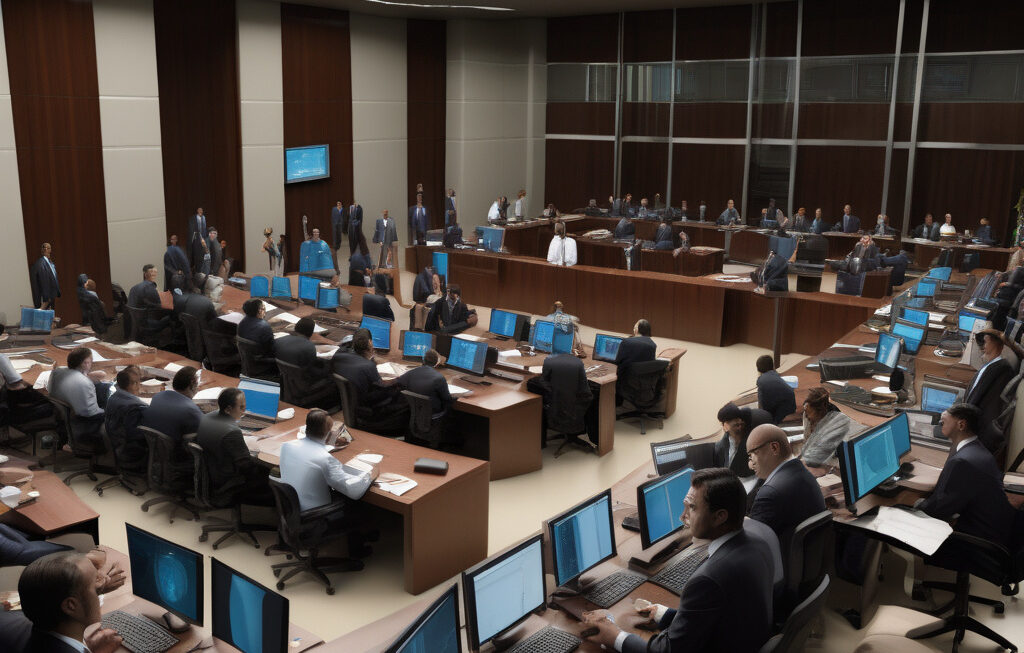Energy and Government Sectors in Poland: Battling Mounting Hacktivist Threats
In recent times, the cybersecurity landscape in Poland has been tumultuous, with government institutions and the energy sector facing repeated politically motivated cyberattacks. These incidents have shed light on the vulnerabilities present in critical infrastructure and the urgent need for robust cybersecurity measures to safeguard against such threats.
The intersection of energy and government sectors in the face of hacktivist threats poses a significant challenge for Poland. Hacktivism, a form of cyber protest that involves hacking into systems for politically motivated purposes, has become increasingly prevalent in the digital age. Hacktivists often target government institutions and critical infrastructure to disrupt operations, steal sensitive information, or spread propaganda.
Poland’s energy sector, responsible for powering homes, businesses, and essential services, is a prime target for hacktivist groups aiming to destabilize the country. A successful cyberattack on energy infrastructure could have devastating consequences, leading to power outages, economic losses, and potential threats to national security.
Similarly, government institutions play a crucial role in maintaining order, delivering public services, and upholding the rule of law. Cyberattacks on government systems can compromise sensitive data, erode public trust, and disrupt the functioning of essential services.
The recent wave of politically motivated cyberattacks against Poland’s energy and government sectors underscores the pressing need for enhanced cybersecurity measures. Investing in state-of-the-art technologies, implementing robust security protocols, and fostering a culture of cyber resilience are essential steps in mitigating the risks posed by hacktivist threats.
Furthermore, collaboration between the public and private sectors is key to strengthening Poland’s cyber defenses. By sharing threat intelligence, best practices, and resources, government institutions and energy companies can collectively enhance their cybersecurity posture and respond effectively to evolving threats.
In addition to technological solutions, raising awareness about cybersecurity best practices is crucial in building a cyber-savvy workforce. Training employees to identify phishing attempts, practicing good cyber hygiene, and staying informed about the latest cybersecurity trends can help prevent successful cyberattacks and protect sensitive information.
Moreover, conducting regular security assessments, penetration testing, and incident response drills are vital components of a comprehensive cybersecurity strategy. Proactive measures that identify vulnerabilities, test defenses, and prepare for potential breaches can significantly reduce the impact of hacktivist threats on Poland’s energy and government sectors.
As the digital landscape continues to evolve, the threat of hacktivist attacks on critical infrastructure remains a persistent concern. By prioritizing cybersecurity, implementing proactive measures, and fostering collaboration, Poland can enhance its resilience against politically motivated cyber threats and safeguard its energy and government sectors from potential harm.
In conclusion, the mounting hacktivist threats facing Poland’s energy and government sectors highlight the need for proactive cybersecurity measures and collaborative efforts to enhance resilience against cyberattacks. By investing in advanced technologies, raising awareness, and conducting regular security assessments, Poland can strengthen its cyber defenses and mitigate the risks posed by politically motivated cyber threats.
Cybersecurity, Hacktivism, Poland, Energy Sector, Government Institutions












